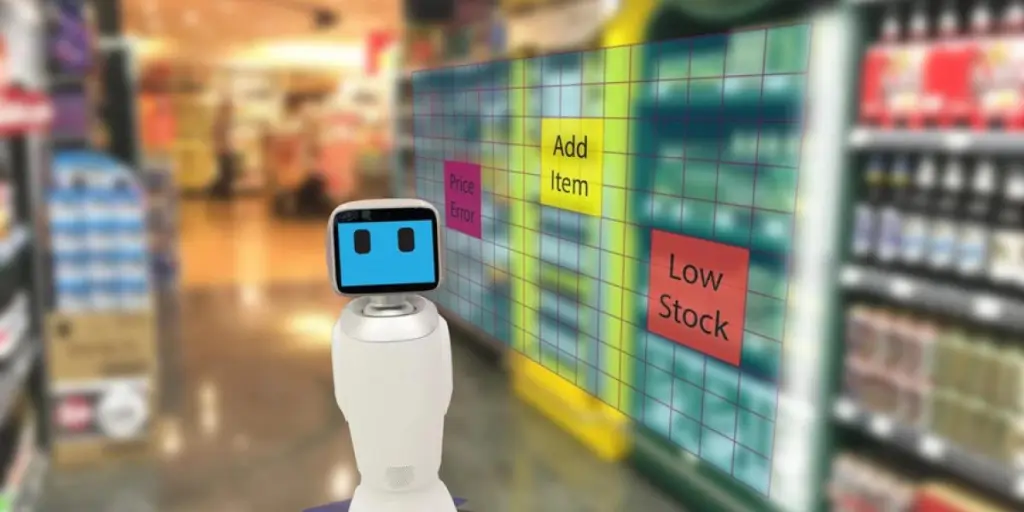AI, deepfakes, experiential shopping, and sustainability will combine to transform the retail landscape in the year.

The retail industry is on the brink of a significant transformation, fuelled by the ever-improving capabilities of AI.
While AI is already playing a crucial role in demand forecasting and customer sentiment analysis, its potential for industry-wide predictions remains a topic of debate.
Looking forward, the retail landscape in 2024 is expected to see AI breaking through previous constraints, enabling faster decision-making and precise insights, according to the National Retail Federation.
AI unleashes retail potential
AI technologies, particularly generative AI, are becoming integral to the retail sector. Market research company IDC ranks retail as the second-highest industry globally in AI spending.
Retailers embracing AI and machine learning (ML) have experienced remarkable success, with a reported 2.3 times growth in sales and 2.5 times growth in profits in 2023 compared to competitors.
Projections for 2024 suggest a continued upward trend for those integrating AI/ML solutions into their strategies.
Challenges and opportunities
Despite the benefits, concerns persist regarding AI’s reliance on historical data and its potential to displace human roles. The critical challenge lies in ethical and privacy considerations.
Retailers must proactively govern AI use, aligning with core values, mission statements, and business objectives.
Transparency in AI applications is crucial to prevent discrimination and uphold consumer privacy.
Deepfake threat: a growing concern for retailers
The rise of deepfake technology poses a significant threat to retailers, with the potential to damage brand reputations rapidly.
Deepfake videos and voice dupes, easily produced through AI, can lead to security and societal issues.
From misleading content on platforms such as TikTok to impersonating C-suite executives for financial transactions, retailers must be vigilant in addressing the risks associated with deepfakes.
The deepfake challenge
As deepfake technology advances, the risk of fraudulent content escalates.
Instances, including manipulated images of public figures such as the Pope and former presidents, highlight the potential for reputational damage.
Retailers need to stay ahead of the curve, implementing strategies to counter deepfake threats and protect their brand integrity.
Experiential shopping: meeting elevated shopper expectations
In the pursuit of enhanced customer experiences, retailers are focusing on reimagining physical stores.
This shift towards experiential shopping is evident, with flagship stores such as Crate & Barrel embracing innovative designs.
Retailers are leveraging technology to provide personalised and dynamic in-store experiences, blurring the lines between physical and digital realms.
Redefining retail spaces
Retailers such as Reformation and Zara are adopting tech-driven approaches, allowing shoppers to interact with products digitally and personalise their shopping experiences.
Convenience stores are also rethinking their designs to cater to electric vehicle charging needs, creating spaces that encourage lingering.
As Generation Alpha takes the reins, retailers must innovate to meet their preferences for tech-focused experiences.
Circular economy: a pivotal period for retail sustainability
The concept of a circular economy is gaining traction among shoppers, reflected in the growing acceptance of used and refurbished products.
Retailers need to capitalise on this trend by improving in-store experiences and educating consumers about circularity.
As shoppers increasingly embrace sustainability, 2024 presents a pivotal period for retailers to ramp up efforts in promoting and implementing circular practices.
Embracing circular practices
Retailers should focus on improving in-store experiences through superior signage, asking consumers about their preferences for used products, and investing in sustainable marketing.
Efforts to educate shoppers about circularity are essential to ensuring widespread acceptance and driving positive change.
Hyper-personalisation and augmented reality: shaping the future of retail
As we step into 2024, the retail landscape is marked by the pursuit of hyper-personalisation and the increasing relevance of augmented reality (AR).
Large language models (LLMs) are contributing to enhanced personalisation across platforms, with a focus on respecting customer privacy.
The imminent debut of Apple’s Vision Pro and other AR innovations is set to redefine customer interactions.
Hyper-personalisation and AR integration
The challenge for retailers in 2024 lies in delivering hyper-personalisation while respecting customer privacy.
The integration of LLMs and AR across various platforms aims to provide a seamless, personalised experience for shoppers.
With the AR market expected to rebound in 2024, retailers must stay at the forefront of technological advancements to meet evolving customer expectations.
Metaverse and other predictions: what lies ahead
As the metaverse remains a virtual universe connecting users beyond physical boundaries, retailers should anticipate a resurgence of interest.
Technology trends such as the adoption of AR and VR continue to shape retail experiences.
Beyond technology, predictions for 2024 span diverse areas, from changes in social media dynamics to shifts in store sizes, combating organised retail crime, and evolving consumer behaviours influenced by external factors.
Diverse trends in 2024
Ultimately, this year may witness changes in the social media landscape, store sizes, legislation on retail crime, job market dynamics, and the influence of healthcare trends on consumer behaviour.
As retailers navigate these varied predictions, staying adaptable and embracing innovation will be key to thriving in the dynamic retail landscape of 2024.
Source from Retail Insight Network
Disclaimer: The information set forth above is provided by retail-insight-network.com independently of Alibaba.com. Alibaba.com makes no representation and warranties as to the quality and reliability of the seller and products.




